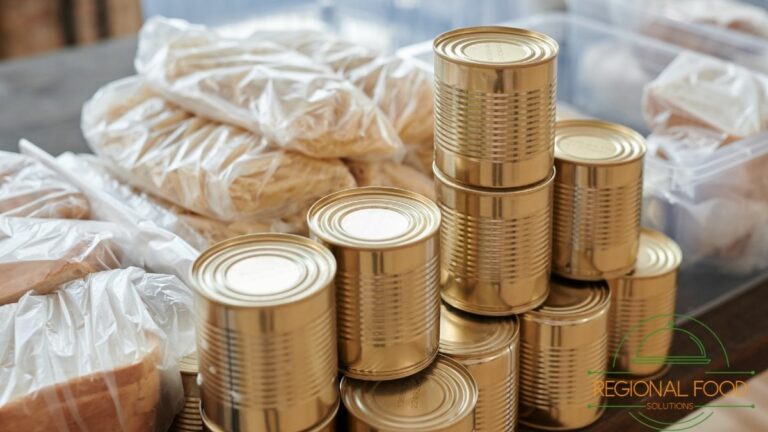Are Pellet Grills a Sustainable Option for Eco-Conscious Grillers?

As someone who is conscious of the impact my daily choices have on the environment, I have been curious about the sustainability of pellet grills. Pellet grills have gained popularity in recent years due to their convenience and ability to impart a smoky flavor to food. However, I wondered if they were a sustainable option compared to traditional charcoal or gas grills.
To answer this question, I researched the manufacturing process of pellets and the energy efficiency of pellet grills.
I also looked into the environmental impact of using pellets versus other fuel sources.
In this article, I will share my findings and provide an overview of the sustainability of pellet grills.
Sustainability of Pellet Grills
Carbon Footprint
When it comes to the carbon footprint, pellet grills are considered to be a sustainable option. Pellets are made from compressed sawdust, which is a by-product of the lumber industry. Therefore, using pellets as a fuel source for grilling reduces waste and promotes the use of sustainable materials.
Furthermore, compared to traditional charcoal grills, pellet grills emit fewer greenhouse gases. Pellet grills use a fan to circulate air and maintain a consistent temperature, which results in a more efficient combustion process. This means that pellet grills produce fewer emissions and have a smaller carbon footprint than charcoal grills.
Energy Efficiency
Pellet grills are also energy-efficient. They use a small amount of electricity to power the fan and the auger that feeds pellets into the firepot. The rest of the energy comes from the pellets themselves.
This means that pellet grills use less energy than gas grills, which require a constant supply of propane or natural gas.
Waste Management
Pellet grills also have a sustainable waste management system. The ash that is produced during the grilling process can be easily disposed of or used as a natural fertilizer. Additionally, the pellets themselves are made from sawdust, which is a by-product of the lumber industry. This means that using pellets as a fuel source reduces waste and promotes sustainable practices.
In conclusion, pellet grills are a sustainable option for grilling. They have a smaller carbon footprint, are energy-efficient, and have a sustainable waste management system. By using pellets as a fuel source, we can reduce waste and promote sustainable practices.
You can find more information on the subject in this article.
Benefits of Pellet Grills
Versatility
One of the main benefits of pellet grills is their versatility. With a pellet grill, I can smoke, grill, roast, bake, and even braise my food. This means that I can use it for a wide variety of dishes, from slow-cooked ribs to perfectly seared steaks.
The temperature control on pellet grills is also precise, which allows me to cook my food to perfection every time.
Ease of Use
Pellet grills are also very easy to use. I simply need to fill the hopper with wood pellets, set the temperature, and let the grill do the rest. The grill will automatically feed the pellets into the firepot to maintain the desired temperature. This means that I don’t need to constantly monitor the grill or adjust the temperature manually. Additionally, pellet grills are very easy to clean, which makes them a convenient option for busy weeknights.
Flavor Enhancement
Pellet grills also enhance the flavor of food. The wood pellets used in pellet grills come in a variety of flavors, such as hickory, mesquite, and applewood. This means that I can experiment with different flavors to find the perfect match for my food. The smoke produced by the wood pellets also adds a smoky flavor to the food, which is a hallmark of traditional barbecue.
Overall, pellet grills offer a wide range of benefits, from their versatility to their ease of use and flavor enhancement.
Whether I’m cooking for a family dinner or a backyard barbecue, I can rely on my pellet grill to provide delicious, perfectly cooked food every time.
Potential Drawbacks
Cost
As with any new technology, the initial cost of purchasing a pellet grill can be quite high. On average, a pellet grill can cost anywhere from $400 to $2,000, depending on the size and features. Additionally, the ongoing cost of purchasing pellets can add up over time. While pellets are relatively affordable, at around $1 per pound, frequent use can quickly deplete your supply and require frequent restocking.
Availability of Pellets
While pellets are becoming more widely available, they may not be as easy to find as traditional charcoal or gas grilling options. This can be a concern for those who live in more remote or rural areas, where access to specialty stores may be limited. Additionally, some pellet grill manufacturers require the use of their own branded pellets, which can further limit your options and increase costs.
RIf you are having trouble finding the right pellet grill for your type of cooking I think you can find answers in this article that is loaded with pellet grill reviews.
Maintenance Requirements
Pellet grills require regular cleaning and maintenance to ensure they continue to function properly. This includes cleaning the burn pot, ash pan, and grease tray after each use, as well as periodically inspecting and cleaning the pellet hopper and auger system. Failure to properly maintain your pellet grill can result in decreased performance and potential safety hazards.
In conclusion, while pellet grills offer many benefits, there are also potential drawbacks to consider. The initial cost, ongoing cost of pellets, availability of pellets, and maintenance requirements should all be taken into account before making a purchase.
Conclusion
Based on my research, it appears that pellet grills can be a sustainable option for grilling enthusiasts. While they do require electricity to operate, they use renewable wood pellets as fuel, which can be made from sawdust and other wood waste products. Additionally, pellet grills can be more efficient and emit fewer pollutants than traditional charcoal or gas grills.
However, it’s important to note that not all pellet grills are created equal when it comes to sustainability. Some models may use more electricity or produce more emissions than others, so it’s important to do your research and choose a high-quality, efficient model.
Overall, I believe that pellet grills have the potential to be a sustainable and environmentally-friendly option for grilling. As with any product or appliance, it’s important to consider the environmental impact and make informed decisions to minimize our carbon footprint.
Mark Turner
Mark Turner is a food lover who likes to travel the world and find food that he never tasted before. With all the tasting he did all over he can write some amazing content related to food and cooking. You can read more about Mark Turner here.





